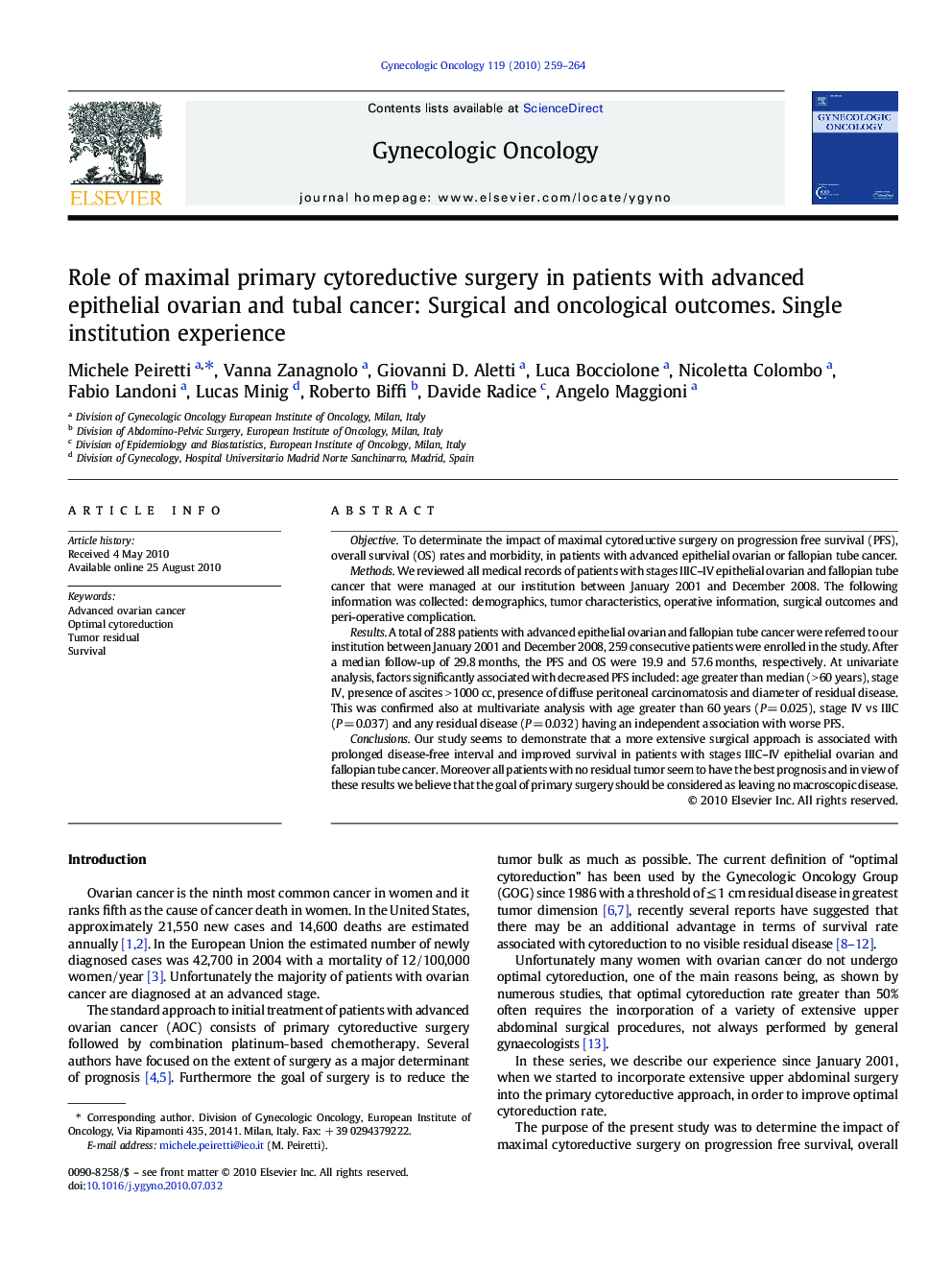| Article ID | Journal | Published Year | Pages | File Type |
|---|---|---|---|---|
| 3947326 | Gynecologic Oncology | 2010 | 6 Pages |
ObjectiveTo determinate the impact of maximal cytoreductive surgery on progression free survival (PFS), overall survival (OS) rates and morbidity, in patients with advanced epithelial ovarian or fallopian tube cancer.MethodsWe reviewed all medical records of patients with stages IIIC–IV epithelial ovarian and fallopian tube cancer that were managed at our institution between January 2001 and December 2008. The following information was collected: demographics, tumor characteristics, operative information, surgical outcomes and peri-operative complication.ResultsA total of 288 patients with advanced epithelial ovarian and fallopian tube cancer were referred to our institution between January 2001 and December 2008, 259 consecutive patients were enrolled in the study. After a median follow-up of 29.8 months, the PFS and OS were 19.9 and 57.6 months, respectively. At univariate analysis, factors significantly associated with decreased PFS included: age greater than median (> 60 years), stage IV, presence of ascites > 1000 cc, presence of diffuse peritoneal carcinomatosis and diameter of residual disease. This was confirmed also at multivariate analysis with age greater than 60 years (P = 0.025), stage IV vs IIIC (P = 0.037) and any residual disease (P = 0.032) having an independent association with worse PFS.ConclusionsOur study seems to demonstrate that a more extensive surgical approach is associated with prolonged disease-free interval and improved survival in patients with stages IIIC–IV epithelial ovarian and fallopian tube cancer. Moreover all patients with no residual tumor seem to have the best prognosis and in view of these results we believe that the goal of primary surgery should be considered as leaving no macroscopic disease.
